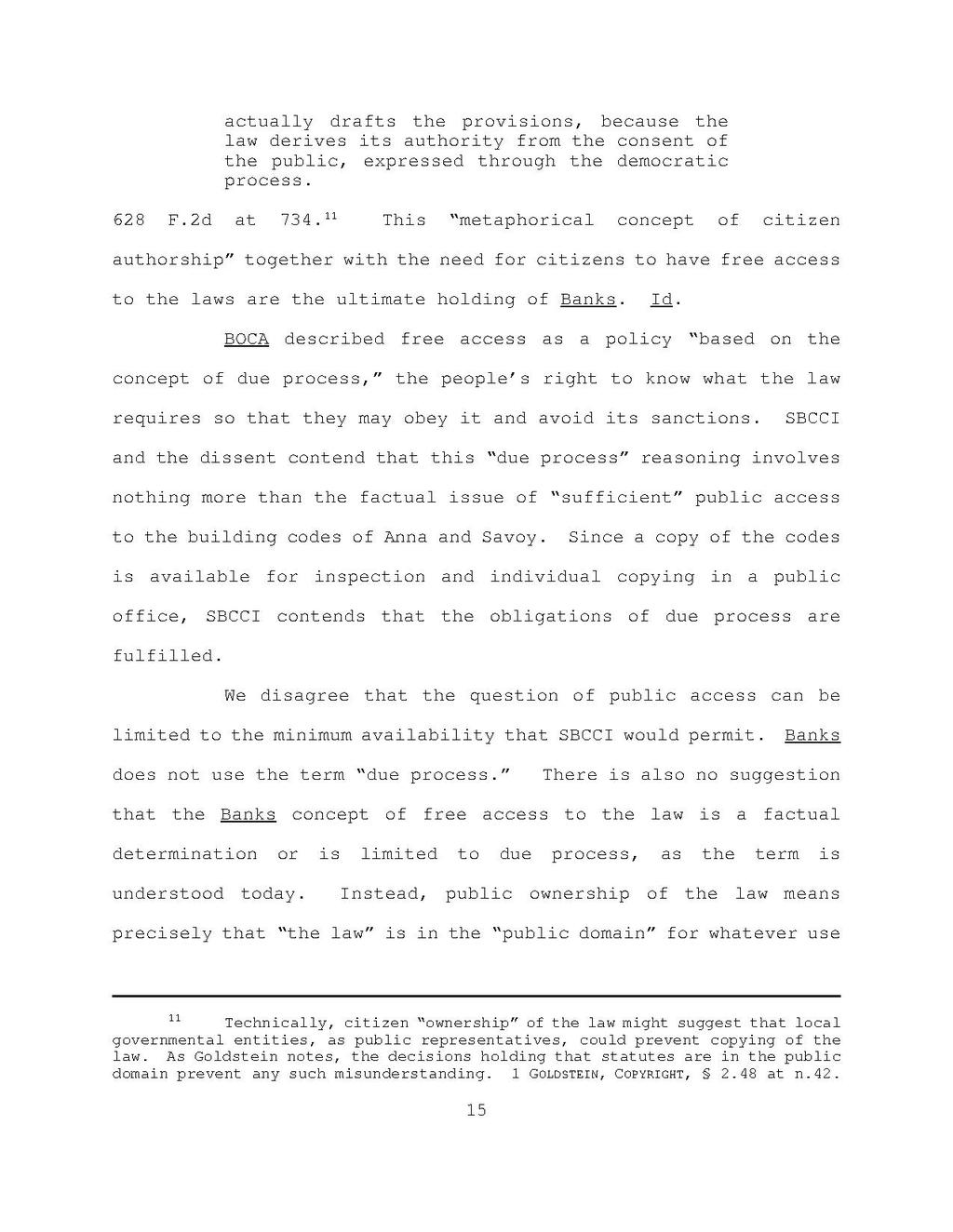actually drafts the provisions, because the law derives its authority from the consent of the public, expressed through the democratic process.
628 F.2d at 734. [1] This "metaphorical concept of citizen authorship" together with the need for citizens to have free access to the laws are the ultimate holding of Banks. Id.
BOCA described free access as a policy "based on the concept of due process," the people's right to know what the law requires so that they may obey it and avoid its sanctions. SBCCI and the dissent contend that this "due process" reasoning involves nothing more than the factual issue of "sufficient" public access to the building codes of Anna and Savoy. Since a copy of the codes is available for inspection and individual copying in a public office, SBCCI contends that the obligations of due process are fulfilled.
We disagree that the question of public access can be limited to the minimum availability that SBCCI would permit. Banks does not use the term "due process." There is also no suggestion that the Banks concept of free access to the law is a factual determination or is limited to due process, as the term is understood today.
Instead, public ownership of the law means precisely that "the law" is in the "public domain" for whatever use
- ↑ Technically, citizen "ownership" of the law might suggest that local governmental entities, as public representatives, could prevent copying of the law. As Goldstein notes, the decisions holding that statutes are in the public domain prevent any such misunderstanding. 1 Goldstein, Copyright, § 2.48 at n.42.
15
